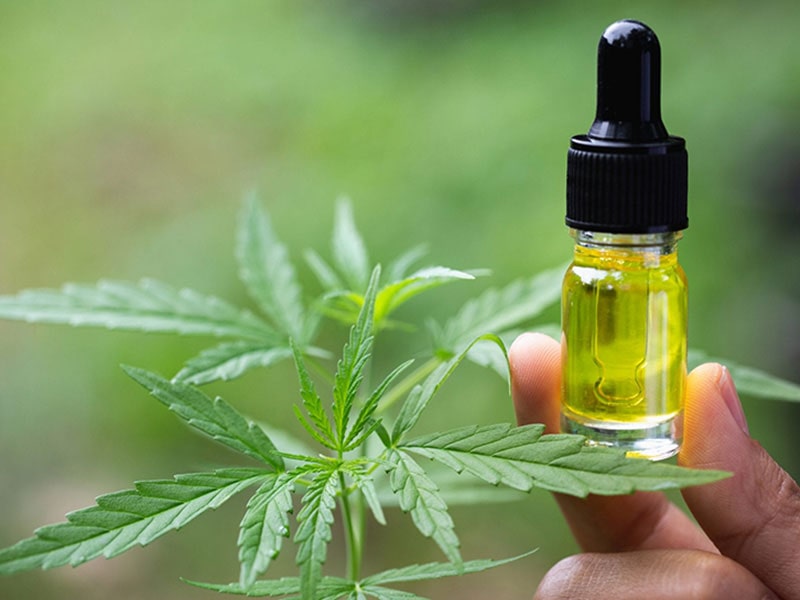
Migraines can be a difficult ailment to treat. Migraine sufferers know that it is a complex disorder with many different triggers. Migraines are different from allergy or stress-related headaches. They can last anywhere from 4 to more than 24 hours and can make everyday activities difficult to perform.
Migraine symptoms can sometimes be relieved with a pain reliever, but many people are concerned about side effects. Some of the most popular painkillers are associated with side effects such as nausea, drowsiness, sweating and even depression. That’s why CBD for migraines can be a natural alternative.
CBD is an active substance present in the hemp plant. It is gaining popularity every year as a remedy to treat different medical problems in a natural way. In this article we are going to explore in detail what migraines are, whether CBD is useful to treat them, what studies say and how CBD should be taken for migraines.
Overview of migraines
Basically, migraines are recurrent, severe headaches. They may be accompanied by certain sensory cues and other symptoms. According to the American Migraine Association, 36 million Americans (12% of the population) suffer from this condition.
The cause of migraines is not yet known, but it is believed to be the result of some abnormal activity in the brain. This appears to affect blood vessels and chemicals in the brain, as well as the way nerves communicate. Genetics may make a person more sensitive to triggers than migraines. Here we bring you a list of some of the most common triggers that lead to migraines:
- Emotional: Depression, excitement, stress and shock can cause migraines.
- Diet: Caffeine and alcohol may produce migraines. Certain foods may also have this effect, including citrus fruits, cheese, chocolate and foods containing an additive known as tyramine. It is also believed that varying meal times frequently and dehydration can cause migraines.
- Hormonal changes: During menstruation, women may experience migraine symptoms due to changes in hormone levels.
- Medications: Hormone replacement therapy (HRT) medications, some sleeping pills and the combined birth control pill can be culprits for migraines.
- Environment: Strong odors, flickering screens, loud noises and smoke can lead to migraines. Bright lights, crowded spaces and temperature changes are also possible causes.
- Physical causes: Neck and shoulder tension, sleep and fatigue, physical overexertion, and poor posture have been linked to migraines. Jet lag and low blood pressure may also trigger them.

At present, there is no effective cure for migraines. Existing treatments are aimed at preventing severe attacks and relieving the symptoms that migraines produce. Some lifestyle changes may help reduce the frequency of migraines, such as drinking plenty of water, getting plenty of sleep, avoiding certain foods, and reducing stress.
For some people, special diets also help, such as a gluten-free diet. CBD for migraines could be another way to help with treatment.
How CBD can help treat migraines
Studies on CBD and migraines are still scarce and limited, partly due to the restrictions imposed on hemp and its derivatives, including CBD. However, the studies that have been conducted suggest that CBD may help in the treatment of migraines.
It is believed that many of the positive effects of this substance come from its interaction with the endocannabinoid system (ECS). The ECS consists of receptors found on many different cell types in the body that act to regulate various physiological systems.
The receptors are known as CB1 and CB2 receptors. Natural cannabinoids in the body (endocannabinoids) are what regulate this system. These chemicals are very similar in structure to phytocannabinoids, which are the cannabinoids in the hemp plant, hence they have similar effects in the body.
SEC is believed to play an important role in the regulation of migraine-producing factors. Research suggests that the SEC may be centrally involved in the pain signaling process.
This could be due, in part, to endocannabinoids inhibiting the release of neurotransmitters that control pain signaling through interaction with the CB1 receptor. In summary, it is believed that SEC could be used as a center for the treatment of inflammatory and physiological pain symptoms related to migraines.
On top of all this, it has been found that CBD may be effective in treating one of the main causes of migraines: inflammation. Inflammation is a perfectly healthy and normal response in the body. Problems arise when inflammation becomes chronic. It seems to be widely accepted that migraines are caused, in part or entirely, by inflammation.
This is where CBD comes into play again. Some of the most recent studies related to the therapeutic benefits of CBD focus on relieving inflammation, such as that of rheumatoid arthritis. This is why it is believed that CBD for migraines may be an effective treatment.
If you want to find great information, you can visit Ecowatch to know more.
Written by Amy M. Cardenas
Like Us On Facebook








